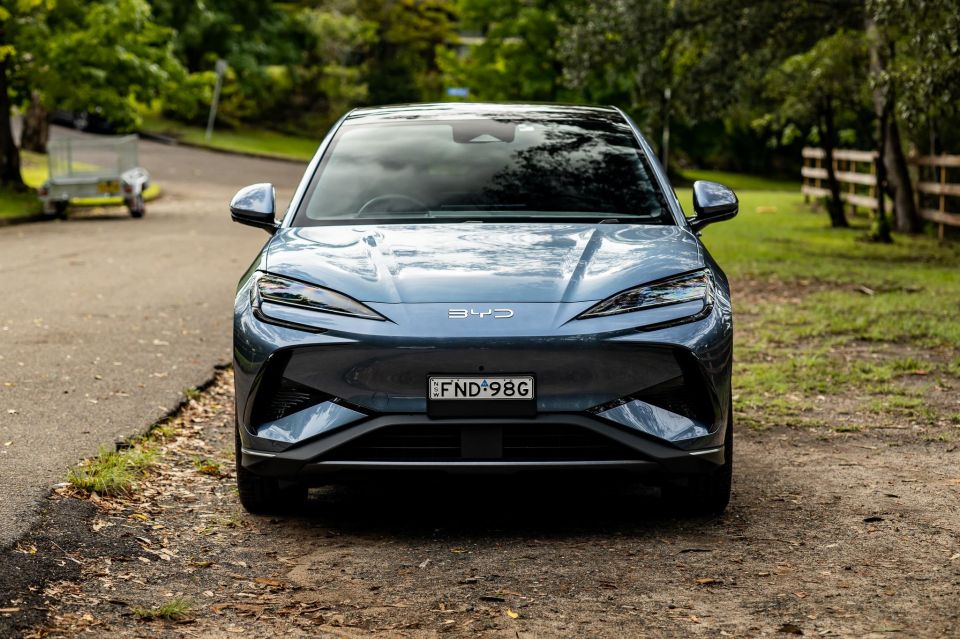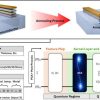Tesla may have experienced a sales slump in recent months, but it’s still Australia’s number one electric vehicle (EV) brand by a huge margin.
According to data supplied by the Federal Chamber of Automotive Industries (FCAI) and the Electric Vehicle Council (EVC), Tesla delivered 14,156 EVs in the first half of 2025, placing it well ahead of second-placed BYD at 8556.
BYD is outselling Tesla overall too, notching up 23,355 deliveries year-to-date including its plug-in hybrid vehicles (PHEVs).
Below is a Flourish chart showing all brands that sell EVs in Australia, and how many they each delivered in the first half of 2025.
Hundreds of new car deals are available through CarExpert right now. Get the experts on your side and score a great deal. Browse now.
A total of 624,130 new vehicles were delivered in Australia during the first six months of 2025, with a total of 47,245 of these being EVs – or 7.6 per cent overall.
In contrast, during the first half of 2024, Australians took delivery of 633,098 new vehicles, with a total of 50,905 of these being EVs – an 8.0 per cent share.
Notably, there are still some brands that don’t report their delivery figures to either the FCAI or the EVC. These include Cadillac, Smart, and Xpeng, though holdout Deepal – which commenced customer deliveries last December – started reporting its figures in May 2025.
Models
The Tesla Model Y remains Australia’s best-selling EV by a country mile, and the arrival of a heavily updated model has helped boost sales in recent months.

While the second-placed BYD Sealion 7 is quite a bit behind, deliveries of the rival mid-size electric SUV only commenced in February and have ramped up, reaching a shocking 1795 in June – just over half the established Tesla brand’s tally.
Another Tesla – the US brand’s only other model in Australia, the Model 3 sedan – sat in third place despite a significant sales decline.
The MG 4 hatch and Kia EV5 mid-size SUV also remained in the top five overall.
Below is a flourish chart showing every EV sold in Australia during the first half of 2025, excluding models like the Cadillac Lyriq, Xpeng G6, and the Smart lineup, for which sales data isn’t available.
We’ve also used VFACTS data to calculate how much of a nameplate’s sales were attributable to EVs, where other powertrain types are available.
| Model | Total deliveries | Total EV deliveries | EV percentage |
|---|---|---|---|
| BMW i5/5 Series | 430 | 257 | 59.8% |
| BMW i7/7 Series | 39 | 16 | 41.0% |
| BMW X1/iX1 | 2691 | 1110 | 41.2% |
| BMW X2/iX2 | 1199 | 720 | 60.1% |
| BMW X3/iX3 | 2441 | 232 | 9.5% |
| Chery C5/E5/Omoda 5 | 2691 | 434 | 16.1% |
| Fiat/Abarth 500 | 207 | 72 | 34.8% |
| Ford Transit van | 943 | 49 | 5.2% |
| Ford Transit Custom | 1629 | 15 | 0.9% |
| Genesis G80 | 20 | 4 | 20.0% |
| Genesis GV70 | 568 | 13 | 2.3% |
| Hyundai Kona | 11,241 | 337 | 3.0% |
| LDV Deliver 7 | 600 | 65 | 10.8% |
| LDV Deliver 9 van | 1341 | 29 | 2.2% |
| LDV MIFA | 121 | 3 | 2.5% |
| LDV T60 | 2449 | 8 | 0.3% |
| Leapmotor C10 | 309 | 190 | 61.5% |
| Lexus UX | 531 | 17 | 3.2% |
| Maserati coupe/convertible range | 10 | 1 | 10.0% |
| Mercedes-Benz G-Class | 202 | 35 | 17.3% |
| Mercedes-Benz Sprinter van | 2026 | 7 | 0.3% |
| Mercedes-Benz Vito | 265 | 40 | 15.1% |
| Mercedes-Benz Vito Tourer | 73 | 21 | 28.8% |
| MG ZS | 10177 | 964 | 9.5% |
| Mini Cooper | 1181 | 262 | 22.2% |
| Mini Countryman | 1135 | 352 | 31.0% |
| Peugeot 208 | 4 | 4 | 100.0% |
| Peugeot 308 | 51 | 9 | 17.6% |
| Peugeot Expert | 124 | 11 | 8.9% |
| Peugeot Partner | 210 | 38 | 18.1% |
| Porsche Macan | 1479 | 584 | 39.5% |
| Renault Kangoo | 117 | 18 | 15.4% |
| Renault Trafic | 516 | 1 | 0.2% |
| Volvo XC40/EX40 | 1287 | 365 | 28.4% |
MORE: VFACTS: Australia’s best-selling brands and models in the first half of 2025








